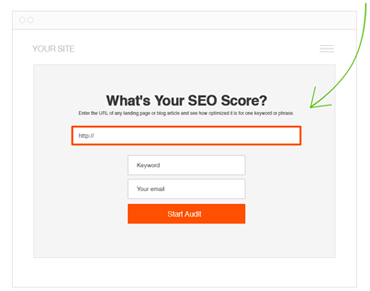SEO for Political Campaigns: Strategies for Election Season
Are you running for election?
It’s difficult to create content that resonates with voters, but it’s even more difficult to create content that inspires action.
Considering the number of people who turn online to find information about candidates, SEO is a viable strategy for political campaigns in the digital age.
In the case of search engines, online services such as Google, Yahoo and Bing help voters find information on political candidates writes Journalist Resource.
When you understand your voters, you can understand how to make your campaigns website SEO friendly for registered voters and search engines by optimizing your campaign strategy for success.
In this post, I’m going to show you four different SEO principles and the ways they can help your political campaign.
This blog post will cover:
- Reputation Management: Influencing what people say about the candidate.
- Real Time Content: Making sure the candidate’s views on particular news stories and events get heard.
- Classic SEO: Making sure people looking for information on issues and elections find the candidate’s site.
- Competition Research: Checking a rivals website let’s you see every place they’ve shown up on Google: every keyword they’ve bought on Adwords, every organic rank, and every ad variation.
#1: Reputation Management
Cultivate the right social media profiles for your political campaign
A big mistake many political campaigns make is to register social profiles at dozens or hundreds of sites and point links to as many as possible, hoping that some will take over those top rankings.
The general sites I recommend include (in order of effectiveness):
That said, another big mistake is presuming that just registering a profile is enough to be effective.
Like everything else in life – nothing worth having comes easy. Invest in your social profiles and they’ll reward you with controllable front-page real estate in search rankings. But don’t abandon your profiles. Don’t give the appearance of disinterest, lack of resources, or having poor time management skills.
#2: Real Time Content
Further validates the importance of social media
In the first half of 2015, tweets started to be visible in Google’s search results as soon as they’re posted, writes Bloomberg’s Sarah Frier on Feb. 4, 2015.
Googles search results are enhanced by access to real-time tweets and a much broader amount of content. What does this mean for your campaign?
- Make Vanity URLs Match
- Develop Real Time Mindset
- Use #Hashtags
- Create Original Content
- Update Regularly
- Monitor Influences
Real time content should be embraced by any political campaign looking to establish and extend its Web presence.
#3: Classic SEO
Make sure the candidates views can be found
SEO is critical to converting online searchers into prospective voters and supporters.
When prospective voters are looking for information on your campaign, they will start with researching on search engines. If you want to capture that traffic, optimizing your campaigns online presence is essential. Rank for issues…if you can.
In their 2015 study “The Search Engine Manipulation Effect (SEME) and its Possible Impact on the Outcomes of Elections,” Epstein and Robertson found search engine results can affect voter preferences by 20 percent or more. With subjects spending the most time on page one.
What pages should a political campaign website include?
- Endorsements
- Issues
- Candidate bios
- Campaign blog
- Volunteer
- Events
- Contribute
#4: Competitive Research
Keep tabs on your political opponents online
It’s helpful for your campaign to do a little competitive research on what rival candidates are generating for search traffic and social engagement. Below are a few spy tools to leverage!
Alexa – shows traffic trends for competing websites.
SpyFu – shows terms that competitors are buying or ranking for in the organic search results.
Compete.com – competitive research tool showing keywords that send competing sites the most traffic.
Majestic SEO – link anchor index that allows you to download the link profile for any site.
Google Traffic Estimator – estimates the number of Google AdWords ad clicks and bid prices for the top ad position.
Followerwonk – helps you explore and grow your social graph.
These are free and paid tools which will help you determine how large a political competitor’s traffic stream is, and which search terms are sending them the most traffic.
Conclusion
Learning more about SEO is a great way to improve your campaigns results.
I’ve shown you 4 principles today that you can use to increase your sales, but there are many more.
 March 13, 2016
March 13, 2016



Social media in itself is a vast pool of mass. And when it comes to gaining votes by influencing people for the politician and maintaining their reputation; social media makes it’s easy.